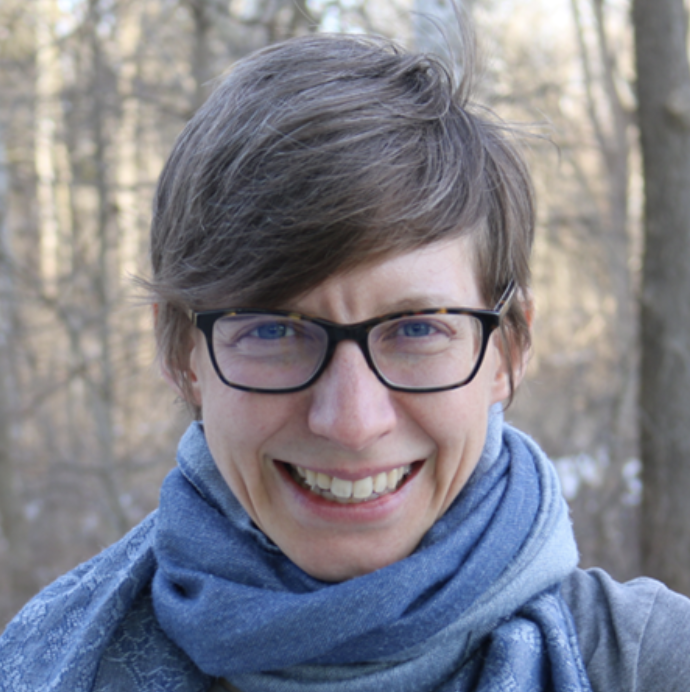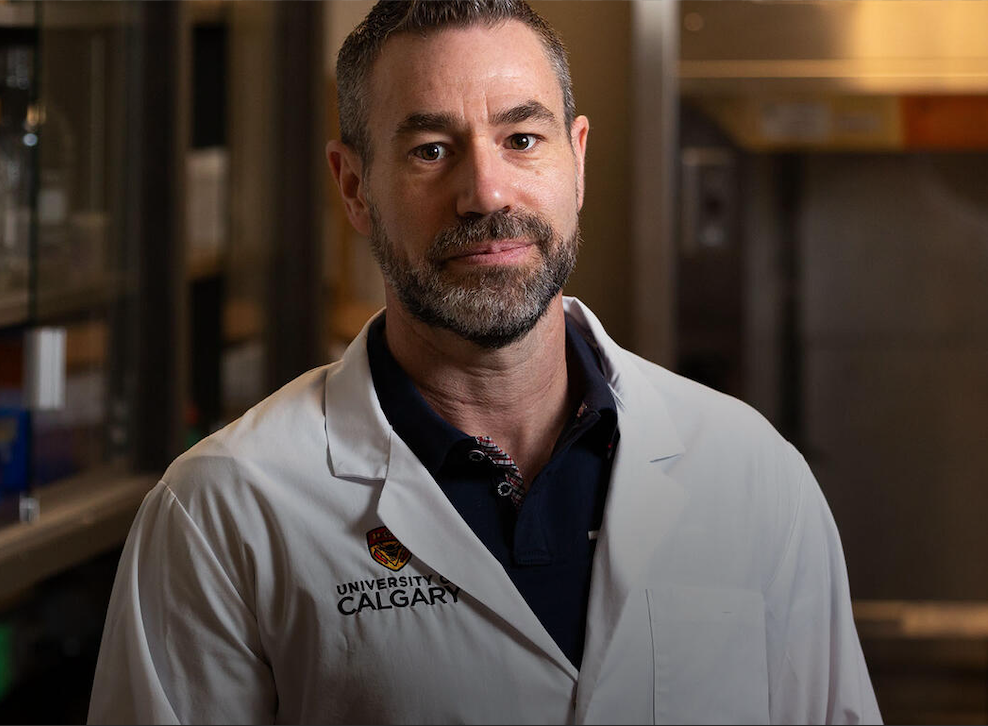Neuroscience is a research strength and priority at Western, and NRD is a trainee-organized conference that aims to bring the Western’s neuroscience community together to share resources and skills, and seed new collaborations. It also features world-renowned keynote speakers and interactive panel discussions and workshops.
QUICK LINKS:
NRD Schedule
NRD Program
Registration
FAQ
COGNITIVE CAREGIVING:
Empowering Dementia Caregivers and At-Risk Individuals through Neuroscience
Thursday February 20th, 5:00PM - 7:30PM @ Museum London
Keynote Lecture
Dr. Mariko Sakamoto
Talk Title: Research in Action: Partnering with the Dementia Community for Real-World Impact
Dr. Mariko Sakamoto joined the UVic School of Nursing as an assistant professor in January 2023. She has been a registered nurse for over 20 years, mostly in the community setting. She is the President of the Gerontological Nurses Association of British Columbia, and is the Knowledge Translation and Education Coordinator for the Centre for Research on Personhood in Dementia. Dr. Sakamoto’s research is focused on how health, wellbeing and quality of life can be enhanced for older people. Her work is also focused on improving health care transitions and community care for older people, especially those living with complex conditions such as dementia. She is interested in community-engaged and Participatory Action Research.
Science and Community Booths: Share your research, recruit participants, or provide resources for community members, particularly those impacted by Alzheimer’s or dementia. We look forward to seeing you there and welcome anyone to register for an information/science booth with resources, participant recruitment, cognitive testing, or anything related to Alzheimer’s, aging, and dementia.
Brain Art Exhibit: Neuroscience-inspired artwork will be displayed and attendees will have the opportunity to chat with the artists abut their work. A $200 cash prize will be awarded for the best art piece!
Poster Session: Graduate and undergraduate students studying aging, dementia, memory, Alzheimer’s, or related topics can present their research and practice engaging with a lay audience. A $200 prize will be awarded for the best poster.
NRD ACADEMIC DAY
Friday February 21st, 8:30AM - 5:00PM @ Thames Hall Atrium
WIN Research Spotlight
Friday February 21st, 9:30AM - 10:30AM @ Thames Hall Atrium
Dr. Angela Roberts
Talk Title: Lessons Learned from Octogenarians and Nonagenarians with Robust Cognitive Longevity: The SuperAging Research Initiative
Professor Angela Roberts is the Canada Research Chair (CRC) in Data Analytics and Digital Health in Cognitive Aging and Dementia. Dr. Roberts holds a joint appointment in the School of Communication Sciences and Disorders and Department of Computer Science. She is also a speech-language pathologist. She is a founding Co-Director of Western’s Collaborative Specialization in Machine Learning in Health and Biomedical Sciences and is a Research Associate with the Canadian Centre of Activity and Aging.
Her impactful research program improves cognitive aging outcomes through rigorously validating connected speech signatures that detect and monitor cognitive decline, building phenotypes and predictive models of cognitive aging trajectories (dementia to extraordinary cognitive aging), and developing dyadic interventions that address communication challenges experienced by persons with dementia and their families. Her clinical research program uses robust randomized control trial designs and telehealth service delivery systems that have a global reach. Her influence extends to health charity organizations as a research board member for Parkinson Canada and an author of internationally distributed patient and family education materials.
Dr. Caroline Nettekoven
Talk Title: A Mapmaker’s Guide to the Cerebellum
Dr. Caroline Nettekoven is a postdoctoral research fellow at Western University, Canada. She studies how the human cerebellum and neocortex interact to enable complex behaviours, such as movement, language, and social cognition. Her research combines ultra-high field multi-modal neuroimaging with machine learning approaches and brain stimulation. She received a BSc from Heidelberg University, Germany and a DPhil from the University of Oxford, UK. After postdoctoral training at the University of Cambridge, she joined Western University as a BrainsCAN fellow. In 2025, she will move to the University of Oxford as a Wellcome Early Career Fellow.
The Great Debate
Does AI enhance or hinder creativity and innovation in scientific research?
Friday February 21, 12:00PM - 2:00PM @ Thames Hall Atrium
Enhance:
Dr. Marieke Mur & Dr. Dan Lizotte
Hinder
Dr. Jörn Diedrichsen & Dr. Jessica Grahn
Marieke Mur is an Assistant Professor at the Department of Psychology, with a cross-affiliation at the Department of Computer Science. She aims to understand how the human brain transforms sensory signals from the outside visual world into meaningful representations that support cognition and action. Research in her lab combines psychophysics, neuroimaging, and computational modelling to study the neural computations that give rise to our understanding of the world.
Jörn Diedrichsen is a Western Research Chair in computational neuroscience at Western University since 2015. His laboratory uses behavioral, computational and functional imaging methods to study how a) the human brain acquires skilled movements, b) how the human cerebellum contributes to human motor and cognitive functions. His work is supported by 2 CIHR project grants, and funding from the Raynor Cerebellar Project. He is highly engaged in Open Science: His laboratory is developing and supporting a number of widely-used toolboxes for the analysis of functional imaging data. As a editor for the journal eLife and has been a driving force in spearheading a new model of scientific publishing.
Dr. Dan Lizotte is Associate Professor in the Department of Computer Science and the Department of Epidemiology and Biostatistics at Western. His research aims to support health decision-making by developing and applying machine learning and statistical tools to new sources of data including electronic health records and social media to better support patients and health professionals, particularly in public health and primary health care. His methodological research combines machine learning, optimal sequential decision-making, and multiple objective optimization. Dr. Lizotte has been formally teaching AI methods to a diverse set of students for over ten years, and he teaches the Public Health Informatics course for in the Schulich Interfaculty Program in Public Health at Western. Dr. Lizotte is also the Director of the Rotman Institute of Philosophy at Western, and he has a strong interest in intersectionality and other critical social theory and how they should inform the development and deployment of AI tools that support health equity. He is currently working with the Alliance for Healthier Communities to develop tools for research and decision support.
Dr. Jessica Grahn is a distinguished cognitive neuroscientist renowned for her pioneering research at the intersection of music, rhythm, and brain function. She serves as a professor in the Department of Psychology and is a core member of the Centre for Brain and Mind at Western University in Canada. Dr. Grahn's research delves into how the brain processes rhythm and music, and how these processes influence movement, cognition, and emotion. Her innovative work has significant implications for rehabilitation, particularly for patients with Parkinson’s disease and other motor disorders. Dr. Grahn frequently engages in public outreach, sharing her insights on how music impacts the brain. She has delivered engaging talks at academic conferences and public forums, such as TEDx, highlighting the powerful connections between rhythm and movement.
Funding/Grant Writing Workshop
How to make your grants and funding applications open, accessible, and equitable
Friday February 21, 2:15PM - 3:00PM @ Thames Hall Atrium
Dr. Christine Moreau
Christine earned her PhD in Cognitive Psychology at Western University and now serves as the Open Science Research Specialist at the Western Institute for Neuroscience (WIN). In this role, she is dedicated to promoting and implementing open science practices across various research initiatives, ensuring transparency, accessibility, and reproducibility of scientific findings. A key aspect of her work involves educating trainees, staff, and faculty about the principles and benefits of open science to foster a culture of inclusivity and collaboration in research.
Dr. Alex Levine
Dr. Alex Levine (she/her) is the Equity, Diversity, Inclusion, and Decolonization Research Specialist at Western Research and a member of the Inclusive Research Excellence and Impact Team. With a background in Psychology, Cognitive Neuroscience, and Neuroimaging from Nottingham and York (UK), Alex joined Western as a postdoctoral fellow in 2017. She has since moved to roles which focus on advancing Equity, Diversity, Inclusion and Decolonization across the academy and research. In her current role, Alex supports scholars across Western in embedding EDID principles in their research, and throughout the academy through challenging the ways in which our research practices and design tend to centre ideas and members of privileged groups.
Keynote Lecture
Dr. Matthew Hill
Talk Title: A Tale of Translation: Endocannabinoid Regulation of Stress, Anxiety and Fear from Rodents to Humans
Friday February 21, 3:30PM - 4:30PM @ Thames Hall Atrium
Dr. Matthew Hill, PhD, was announced as the first Chair of the Mental Health Initiative for Stress and Trauma (MIST). As Chair, Dr. Hill is leading MIST to explore how stress and trauma impact the brain, and what can be done to create healthier outcomes for people. An internationally recognized researcher in his field, Dr. Hill has spent more than two decades (with over 12 years leading his lab) exploring the neurobiology of stress and how it relates to the development of psychiatric illness. His work has helped us better understand how stress hormones modify the brain and our behaviour, and has shed light on how stress is the primary cause of mental health conditions like mood and anxiety disorders, as well as PTSD (post-traumatic stress disorder). Dr. Hill’s work has also been extremely influential to other researchers in the field, forging many transdisciplinary collaborations, and leading to several clinical trials for novel medications to treat anxiety and trauma-related psychiatric disorders.
Data Blitz Oral Presentation Winners
Friday February 21, 10:45AM - 12:00PM @ Somerville House
Daya Kumar, MSc
Matthew Jones, PhD
Isis So, MD/PhD
Kasha Mansour, PhD











